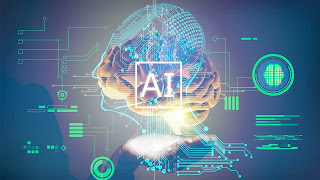AI technology or Artificial Intelligence Technology, is a field of computer science that focuses on the development of intelligent machines that can perform tasks that would normally require human intelligence. AI technology is based on the idea that machines can be programmed to learn from data, identify patterns, and make decisions in a way that is similar to the way humans think and act.
AI technology can be divided into several subfields, including machine learning, natural language processing, computer vision, and robotics. Each of these subfields focuses on a different aspect of AI technology, but all are based on the idea of developing intelligent machines that can interact with the world in a way that is similar to human intelligence.
Machine learning is a subfield of AI technology that involves the development of algorithms that can learn from data and improve their performance over time. These algorithms can be used for a wide range of applications, including image recognition, speech recognition, and natural language processing.
Natural language processing is a subfield of AI technology that focuses on the development of algorithms that can understand and interpret human language. This technology is used in applications such as voice assistants, chatbots, and language translation software.
Computer vision is a subfield of AI technology that focuses on the development of algorithms that can interpret and analyze visual data. This technology is used in applications such as facial recognition, object detection, and self-driving cars.
Robotics is a subfield of AI technology that focuses on the development of intelligent machines that can perform physical tasks in the real world. This technology is used in applications such as manufacturing, logistics, and healthcare.
AI technology is a rapidly evolving field that has the potential to transform many aspects of our lives. As AI technology continues to advance, we can expect to see increasingly sophisticated machines that are capable of performing tasks that were previously thought to be impossible for machines to accomplish.
Categories of AI Technology:
Machine Learning:
This category of AI technology involves the development of algorithms that can learn from data and improve their performance over time. It is used in applications such as speech recognition, image recognition, and predictive analytics.
Natural Language Processing (NLP):
This category of AI technology focuses on developing algorithms that can understand, interpret, and generate human language. NLP is used in applications such as chatbots, virtual assistants, and language translation software.
Computer Vision:
This category of AI technology involves the development of algorithms that can interpret and analyze visual data, such as images and videos. It is used in applications such as facial recognition, object detection, and self-driving cars.
Robotics:
This category of AI technology involves the development of intelligent machines that can perform physical tasks in the real world. It is used in applications such as manufacturing, logistics, and healthcare.
Expert Systems:
This category of AI technology involves the development of systems that can make decisions and solve complex problems in a specific domain, such as healthcare or finance. Expert systems are typically based on rule-based or decision-tree models.
Generative Models:
This category of AI technology involves the development of algorithms that can generate new data, such as images, music, or text. It is used in applications such as content creation, artistic expression, and data augmentation.
Benefits of AI technology:
Automation:
AI technology can automate repetitive and mundane tasks, allowing humans to focus on more complex and creative work. This can increase productivity and efficiency while reducing errors and costs.
Personalization:
AI technology can analyze large amounts of data to personalize products and services for individual users. This can improve customer satisfaction and loyalty.
Decision-making:
AI technology can analyze data and provide insights to support decision-making in various industries, including healthcare, finance, and logistics. This can lead to more informed and accurate decision-making.
Predictive analytics:
AI technology can analyze historical data to make predictions about future trends and events. This can help businesses and organizations to identify opportunities and risks and make better strategic decisions.
Improved safety:
AI technology can be used to improve safety in industries such as healthcare, transportation, and manufacturing. For example, self-driving cars can reduce the number of accidents caused by human error, while predictive maintenance in manufacturing can reduce the risk of equipment failure.
AI technology has the potential to transform many industries and improve our daily lives in numerous ways. It can help businesses to become more efficient, increase profitability, and improve customer satisfaction, while also addressing some of the biggest challenges facing society, such as healthcare, climate change, and poverty.



